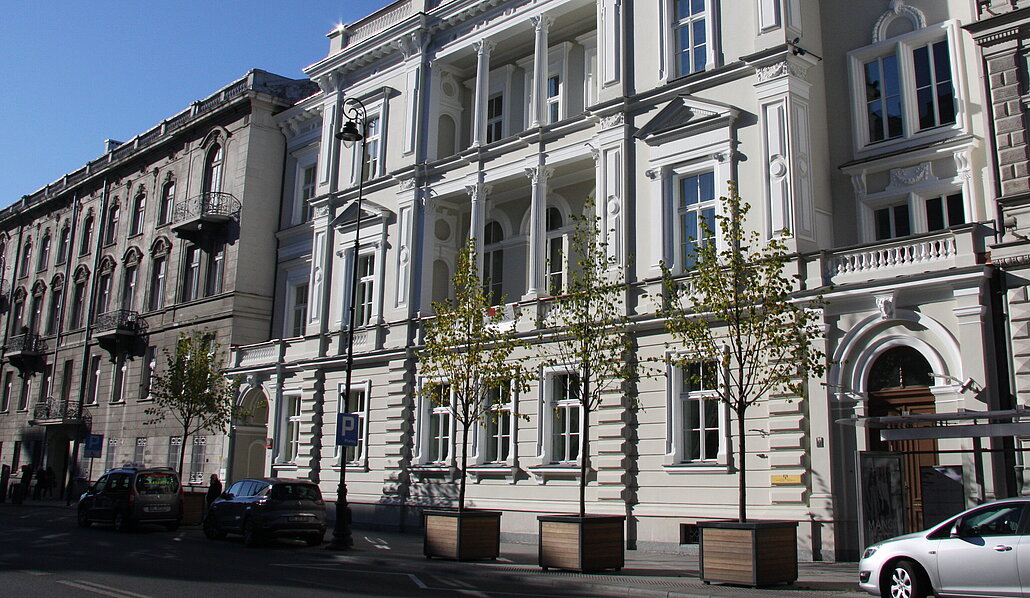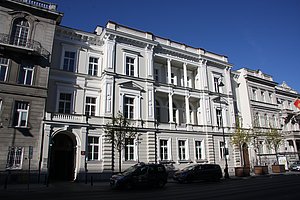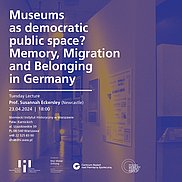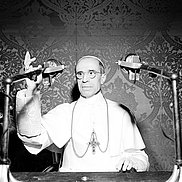A part-time (0,66 FTE) post-doc position at the German Historical Institute Warsaw (GHIW) as part of the research project “Infrastructures of Memory. Actants of Globalization and Their Impact on Polish and German Memory Culture”, conducted at GHIW and the University of Lodz, and funded by the Polish-German Research Foundation.
About the project:
Since the impact of infrastructural conditions on the shaping of cultural memories is not yet fully recognized, this project scrutinizes various factors that affect exhibitions (artistic, historical, ethnographic, memorials etc.) as forms of mediatized memory. The factors in question include the materiality of artifacts, conservation requirements, the architecture of exhibition spaces, installation formats and display techniques, legal frameworks, managerial strategies, and financial sources for cultural institutions, networks of collaboration, cultural education practices, and environmental and climate aspects. What is more, due to the accelerating processes of globalization, the development of local and national memory cultures cannot be considered apart from the international changes in the field. The project, therefore, considers the development of the German and/or Polish memory cultures in a broader transnational context. More specifically, the research focuses on various types of exhibitions that showcase Polish and German histories of World War II and the Holocaust in so far as they deal with relations between the two countries. In doing so, the project takes into account the roles of both human and non-human actors which condition cultural production.
The PIs of the projects are: dr hab. Magdalena Saryusz-Wolska (GHIW) and dr Tomasz Załuski (University of Lodz).
Tasks:
The post-doc researcher should conduct research on the infrastructural factors of permanent and/or temporary exhibitions in museums and memorials. The exhibitions in question must display histories of World War II and the Holocaust in Poland and Germany. Transnational contexts are welcome. We encourage innovative projects with a special focus on the materiality of the exhibitions, including their design, technologies, environment, administration, and funding. The research concept should combine empirical findings with theoretically supported interpretations.
The post-doc researcher is obliged to:
- publish the results of the research in high-quality journals and/or high-quality collective volumes of international range (publishing a monograph is not required) individually and in cooperation with other members of the project team;
- present the findings at international conferences and seminars;
- support the research team in organizing workshops and conferences and editing a special issue of a journal;
- demonstrate a good knowledge of the research apparatus of cultural studies; have the ability to conduct interviews and work with collected data;
- show interest in the topic of the project, i.e., cultural memories of Poland and Germany; museum and exhibition studies;
- have knowledge of recent museum developments in Poland and Germany and of methods used in methods and memory studies; knowledge of exhibition histories methodology will be an additional asset.
We offer:
- a salary of approx. 10000 PLN brutto/month (pre-tax) for a 0,66 position (24 hours/week) from October 2023. The contract will be signed with the German Historical Institute in Warsaw under Polish law. The position will initially be offered for a probationary period of 3 months and then for another 12 months. After annual evaluations, it may be extended for another 21 months (i.e. up to 3 years in total, 3+33 months);
- participation in an innovative research project contributing to memory studies, museum and exhibition studies, Polish and German studies;
- regular research meetings and seminars for professional and constructive feedback;
- additional research costs allowance (research trips, literature, proof reading etc.);
- excellent research infrastructures at the participating institutions, i.e. the German Historical Institute Warsaw, the University of Lodz, and the University of Regensburg.
Requirements:
The candidates should have a PhD degree in cultural studies, history, sociology, art history, anthropology, or similar, awarded not earlier than 7 years ago (breaks related to maternity and/or health leave should be added to this period). They should also have an excellent scientific track record. They should be fluent in English, and Polish or German (preferably both). Residency in any of the cities of the home institutions (Lodz and Warsaw) is not required. However, the post-doc researcher must participate in person in regular meetings and seminars at the home institutions; the travel costs to these events will not be covered.
Candidates should submit:
- a copy of the PhD diploma (or a confirmation that the dissertation has already been submitted and accepted);
- cover letter containing a description of scientific interests and achievements as well as a justification of the intention to undertake scientific work under the research project, in English;
- individual project proposal (max. 5 pages) within the thematic scope of the research program, in English;
- curriculum vitae, including the history of previous education and employment as well as a list of publications and other scientific achievements;
- copies of up to three relevant academic articles;
- at least one recommendation letter (if available) and/or the names and contact information of three referees;
- the following statement: “I consent to the processing of my personal data for the purposes of the recruitment process (in accordance with the personal data for the Personal Data Protection Act of August 29, 1997, Journal of Laws No. 133, item 883).”
Incomplete applications will be rejected. The selection board will evaluate the applications, and the selected candidates will be invited to an interview. It will be held in person or online in English, and Polish or German. After the interviews, the chairman of the selection board will prepare a protocol containing the name of the recommended candidate. If additional questions occur, the board will contact the selected persons via email or phone. The person selected for the position will be informed by email.
Candidates should send their applications to tomasz.zaluski@uni.lodz.pl with the subject "Post-Doc Infrastructures" by 31 August 2023. The results will be announced by 25 September 2023
The host institutions are family-friendly employers, particularly concerned about the compatibility of family and career. They implement all equality policy requirements.






